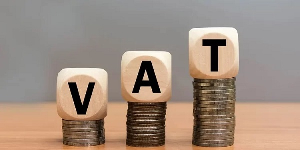Effective January next year, the Ghana National Association of Authors and Publishers (GNAAP) says it will run solely on a ” cash and carry” basis until the country’s economic situation improves.
This decision is expected to have dire consequences on books supplies, as well as other learning material since most schools, especially, those in the private sector, operates on credit lines.
Credit
The President of the association, John Akwasi Amponsah, explained at a press conference in Kumasi that books development and distribution, for many years, had been credit driven.
He added most clients which included both private and government had, over the years, been given a credit facility that extended between three to six months.
“Meanwhile, even if we obtain credit from our creditors outside of Ghana, we have up to 40 days to finish payment. Giving the current economic situation on books and printing, we stand the risk of losing value on our investment capital if our credit facility extends beyond 30 days. This affects the chain of production for both importers and paper printers of books,” he said.
Cash and carry
“For this reason, we are compelled to run on cash and carry basis until the country’s economic situation is stabilized,” the president stressed.
The effect of the decision, he said, would result in challenges with book availability and accessibility, and most importantly, the quality and smooth running of quality education in the country.
“This is because the ordinary Ghanaian might not be able to afford the high cost of books and stationery as a result,” Mr Amponsah said.
According to him, the country’s publishing industry was on the verge of collapse due to the current economic woes.
He has, therefore, suggested that government, through a private-public partnership, must run a paper mill to ensure local printers and textbook developers have papers to print books.
Also, he said the Ministry of Education should, as a matter of urgency, meet with the industry players to discuss possible financial reengineering to save the situation.
Exchange rate
Currently, the exchange rate of the cedi to the dollar stands at Gh 14.30.
Mr Amponsah said that meant importers of paper and finished products as well as printing inputs would need more cedis to run a smooth business.
“For example, goods that needed $ 62000.00 to import in 2021, require a consignment of close to this same amount to print and offload this year. In the same year, the port charges required to clear a container of this same load of books was GHC 42000.00.
The nature of our business is such that most of our publishers develop their books locally and send them abroad to be printed most often on a credit basis which does not extend beyond 30 days. If the exchange rate of Ghana is double the exchange rate of Ghana as of last year, we would need an additional $62,000 to pay for the goods last year,” Mr Amponsah said.
In effect, he said situation had made the members indebted to their printers oversees, thus, threatening their ability to keep some of their employed staff.
Inflation and utility
Currently, the country’s inflation rate stands at 37.2 percent which had subsequently resulted in an increase in the cost of goods and services.
As a result, Mr Amponsah noted that the cost of essential accessories and other input needed for book development had, immensely, been affected, thus, making the industry unattractive to continue to invest in it.
He said the situation had made it challenging for members to secure loans since the industry had been earmarked as a high-risk business.
“Loans from some banks from some of our members at the end of 2021, was approximately 27 percent and currently stand at 35 percent on a compounding scale.
What this means is that the chances to secure loans for our own businesses are very slim and that those of us who have succeeded in securing these loans are faced with the challenges of escalated interest rate,” Mr Amponsah said.
According to Public Utility and Regulatory Commission, the cost of utilities from September 1 2022 has increased by 27 percent for electricity and 21 percent for water.
The president of the association said electricity remained important in the book development, hence, the increment tends to affect the cost of doing business highly.
“We, the GNAAP, therefore, call for immediate action to save the industry,” he stressed.
General News of Thursday, 8 December 2022
Source: Ebo Safo, Contributor













